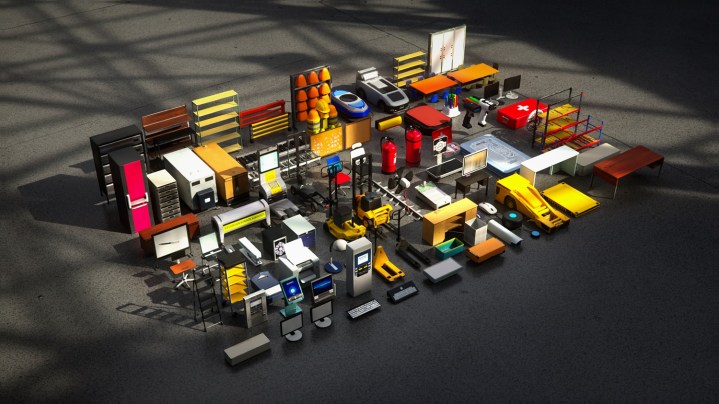We’ve seen plenty of generative AI tools that can spit out images, from Microsoft Designer to Stable Diffusion, but Nvidia is taking generative AI into a new dimension — literally. The company announced a partnership with Shutterstock at Siggraph 2024 that will allow users to generate 3D models using generative AI.
There are handful of AI tools that can generate 3D models, but Shutterstock’s take is definitely the most official tool we’ve seen so far. The models will live in Shutterstock’s TurboSquid library, which currently hosts the company’s library of 3D assets. To generate new assets, Shutterstock says users will be able to provide text and images as prompts. From there, designers can take the assets and edit them in separate apps, with exports available “in a variety of popular file formats,” according to Nvidia.
According to Nvidia, designers will be able to see a preview of their generated asset in as little as 10 seconds. From there, designers can choose to turn the preview into a high-quality 3D asset, applying physically-based rendering (PBR) materials in the process. In addition to assets, Nvidia says users will be able to generate 360-degree HDRi backgrounds that can apply lighting characteristics to virtual scenes.

As with Nvidia’s partnership with Getty Images, the company says that Shutterstock’s 3D model generator is only trained on licensed “ethically sourced” data, making the assets safe for commercial use. As we’ve seen with other generative AI tools, however, it’s hard to truly know where the dataset comes from.
In addition to the Shutterstock partnership, Nvidia said it’s improving the generative AI features available with Getty Images. The company claims the service can create images “twice as fast” now, and with a higher quality.
Shutterstock’s 3D feature is launching in beta, and at first, it will only be available for enterprise customers. Shutterstock hasn’t said if it will open up the program to non-commercial users in the future. At Siggraph, the company is showing off how the tool works inside of Blender, where it’s able to generate 3D assets directly into the application window. In addition, HP is showing off physical prototypes of 3D models generated with Shutterstock’s tool.




